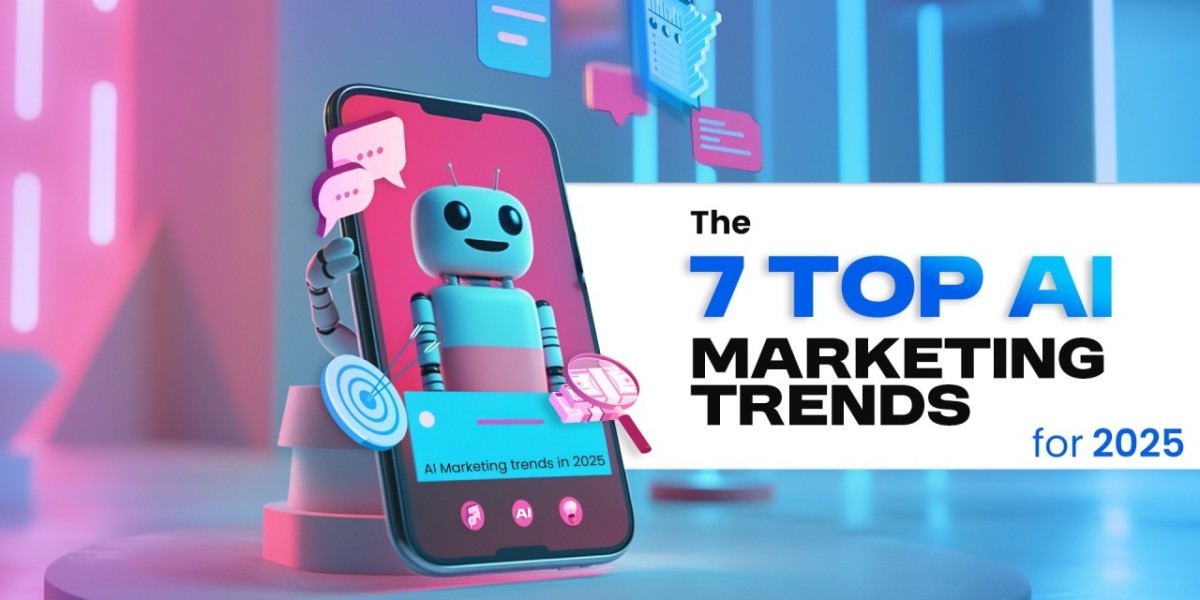1. Personalized Customer Experiences at Scale
Gone are the days of one-size-fits-all marketing. AI is enabling brands to deliver hyper-personalized customer experiences by analyzing vast amounts of data in real time. From recommending products based on browsing behavior to curating tailored email campaigns, personalization powered by AI helps brands foster deeper connections with their customers.
Key tools like AI chatbots and recommendation engines ensure that every touchpoint feels personal and relevant. Companies using AI for personalization report up to a 30% increase in customer satisfaction and conversion rates.
2. Predictive Analytics for Smarter Decision-Making
Predictive analytics, driven by AI, is a game-changer for marketers looking to forecast trends and customer behaviors. By leveraging historical data,digital marketing agency in sharjah AI can predict future buying patterns, helping marketers allocate budgets effectively and target the right audience.
For instance, e-commerce businesses can use predictive models to anticipate inventory demands, while content creators can gauge which topics will perform well. With tools like Google AI and IBM Watson Marketing, brands can act proactively rather than reactively.
3. Conversational AI: Beyond Chatbots
While chatbots have been around for years, 2024 sees conversational AI taking a quantum leap. Virtual assistants and voice-powered technologies like OpenAI’s ChatGPT and Google Bard are becoming integral parts of the customer journey.
AI-driven tools are now capable of understanding complex queries, offering in-depth responses, and even assisting in decision-making. This makes them invaluable for customer service, sales, and engagement. Imagine customers asking for product recommendations or troubleshooting issues—all handled seamlessly by AI.
4. AI-Generated Content Creation
Content remains king, but its creation is undergoing a revolution. Tools like Jasper AI, Copy.ai, and Writesonic are helping marketers produce high-quality content at scale. These platforms can write blog posts, ad copy, and even social media captions in seconds, saving time and resources.
However, success in this area requires a balance. AI-generated content should be paired with a human touch to ensure it resonates authentically with the audience. Expect to see brands use AI for ideation, A/B testing, and generating drafts, while human editors refine and personalize the final product.
5. Visual and Voice Search Optimization
As search behaviors evolve, visual and voice search are gaining traction, and AI is at the forefront of this shift. Platforms like Pinterest Lens and Google Lens allow users to search using images, while voice assistants like Alexa and Siri make verbal queries effortless.
For marketers, optimizing for these search types is no longer optional. Incorporating AI-powered tools to analyze image content or recognize voice patterns can significantly improve SEO rankings and make content accessible to wider audiences.
6. AI-Powered Influencer Marketing
Influencer marketing is booming, and AI is stepping in to enhance its effectiveness. AI tools can identify the right influencers for campaigns by analyzing engagement rates, audience demographics, and content quality.
Moreover, AI can monitor campaign performance in real time, providing actionable insights into ROI. Platforms like Influencity and Heepsy are leveraging AI to ensure marketers choose influencers who align perfectly with their brand values and audience interests.
7. Ethical AI and Transparency in Marketing
As AI becomes more pervasive, ethical considerations are taking center stage. Consumers are growing increasingly aware of data privacy and want transparency in how their information is used.
Brands that prioritize ethical AI practices, such as securing customer consent and ensuring algorithms are unbiased, will build greater trust with their audiences. Expect to see more companies adopting clear AI usage policies and using AI-driven tools to enhance—not exploit—customer relationships.
Why These Trends Matter
The convergence of AI and marketing offers unparalleled opportunities, but it’s not without challenges. Staying ahead of these trends will require marketers to invest in the right technologies, continuously upskill, and keep an eye on consumer expectations.
As AI becomes more integrated into marketing strategies, the potential for innovation is limitless. From personalized experiences to ethical AI practices, 2024 is shaping up to be a landmark year for AI in marketing.
By embracing these trends, businesses can unlock new avenues for growth, efficiency, and customer satisfaction. Keep these strategies on your radar, and you’ll be well-equipped to thrive in the AI-driven marketing era.
Final Thoughts
AI is no longer the future—it’s the present. As we navigate 2024, leveraging AI strategically can set your brand apart from the competition. Stay informed, adopt these trends, and create marketing campaigns that are both innovative and impactful.
By staying at the forefront of AI advancements, you’ll not only stay relevant but also position your business as a leader in this rapidly evolving landscape.








